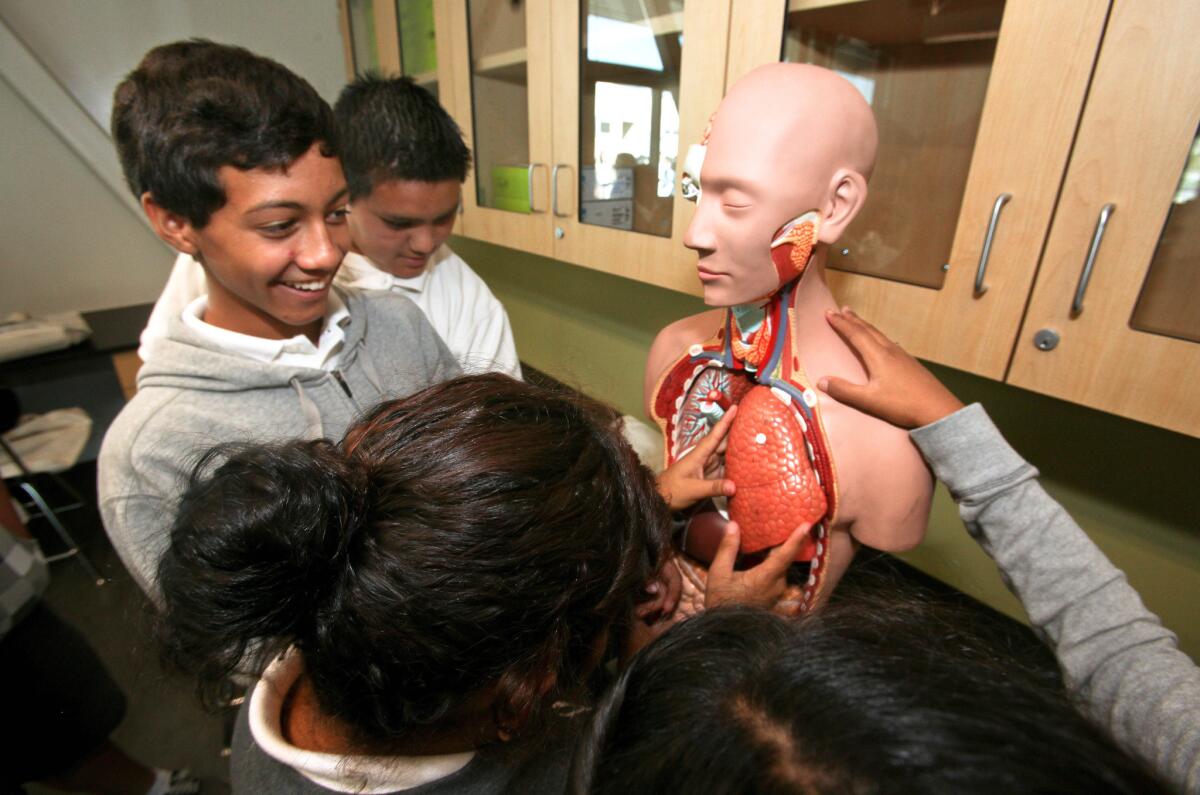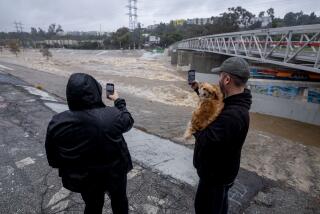New science standards call for teaching climate change and more

The politically touchy topic of climate change will be taught more deeply to students under proposed new national science standards released Tuesday.
The Next Generation Science Standards, developed over the last year by California and 25 other states in conjunction with several national scientific organizations, represent the first effort in some 15 years to transform the way science is taught in million of classrooms. The multi-state consortium is proposing that students learn fewer standards more deeply and not merely memorize information but understand how scientists actually investigated and gathered it.
“What’s important here is that the standards will give students a deep understanding of how science and scientists actually work,” said Phil Lafontaine, a California Department of Education official who has helped spearhead the development of the new standards. “It’s not just what we know but how we came to know it.”
The new standards come amid widespread concern that American students are falling behind global competitors in their mastery of science and math, which are seen as critical fields for future economic development.
“In the next decade, the number of jobs requiring highly technical skills is expected to outpace other occupations,” said state Supt. of Public Instruction Tom Torlakson. “These Next Generation Science Standards will help students achieve real-world practical skills so they can help maintain California’s economic and technological leadership in the world.”
A recent U.S. Department of Commerce study found that over the last 10 years, growth in jobs in the fields of science, technology, engineering and mathematics was three times greater than that of other occupations.
For the first time, the proposed education standards identify climate change as a core concept for science curricula and focus on the relationship between that change and human activity. According to the National Center for Science Education, two-thirds of U.S. students say they are not learning much about the topic.
In California, climate and weather are covered in earth science standards. But the proposed new standards will more explicitly direct students to examine the scientific evidence for how and why the climate is changing and its human impact.
One proposed high school benchmark, for instance, instructs students to explain, based on evidence, how climate change has affected human activities through such phenomena as altered sea levels, patterns of temperature and precipitation, and the effect on crops and livestock.
Lafontaine said the deeper look at climate change is being prompted by heightened public concern about the issue. Other issues set for more thorough study include genetic engineering and the real-world effect on food and medicines.
Although legislators in Tennessee, Alabama, Louisiana and other states have proposed or passed bills to require teachers to include different views on climate change or mandate teaching the topic as a “controversial theory,” the new national standards have not so far sparked any major political flaps.
James Taylor of the Heartland Institute, a Chicago-based conservative think tank, said the standards aren’t perfect –- some positive effects of climate change should have been included, he said. But they are better than most others, he said.
“They are more balanced and fair than most educational guides I have seen put out by advocacy groups or self-professed science groups,” Taylor said.
Each state will decide on its own whether or not to adopt the proposed new standards, which are based on a 2011 framework by the National Research Council. In California, they will be reviewed by a panel of science experts, and public hearings are expected to be held in the spring throughout the state. The State Board of Education is expected to vote on them in November.
ALSO:
Powerball in California: First day brings in record $3.1 million
Why should you love L.A.? Villaraigosa video wants to tell you
UCLA water polo player accused of rape wants to attend class
teresa.watanabe@latimes.com
More to Read
Start your day right
Sign up for Essential California for news, features and recommendations from the L.A. Times and beyond in your inbox six days a week.
You may occasionally receive promotional content from the Los Angeles Times.







